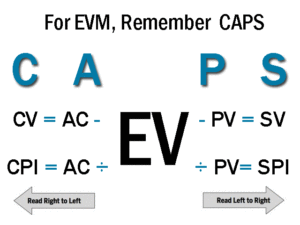PMP Exam Study Tips
Studying for the Project Management Professional (PMP) Exam
Commit to the Test: Don’t put off scheduling your exam. When I started the process, I studied intermittently for a while but ultimately was not making any substantial progress. Once I scheduled my exam, the pressure was on and my most beneficial studying ensued.
Utilize Multiple Resources: The latest PMBOK Guide is an obvious key resource. There is also a wide variety of exam prep books and study videos to supplement your studying. These can help fill in gray areas or connect the dots as they present a different look at the information. Some examples are Rita Mulcahy’s PMP Exam Prep, PMP Exam Study Guide, Pluralsight, CBT Nuggets, etc.
Know the Process and Knowledge Area Matrix: Know this matrix. The knowledge of the process groups and knowledge areas will help guide you in your studies.
Know Formulas: Memorizing the earned value management, forecasting, and TCPI formulas will come in handy. PapercutPM has a few good resources that proved beneficial (here is an example):
Mnemonics: Mnemonics were clutch in my preparation. It aided in my recollection of the matrix as well as pertinent formulas. Create mnemonics that mean something to you for better retention.
Understand the Material: While memorizing matrices and formulas will help guide you, a true understanding of the material is the ultimate key.
Practice Exams: Many of the prep books out there provide practice exams. Additionally, there is a variety of mock exams available on the internet. Take as many as you can and determine your weaknesses. Take those weaknesses and turn them into strengths.
Brain Dump: You are no longer allowed to write down notes during the exam tutorial. However, once the exam starts, write down all the formulas and matrices for easy reference.
Know When to Stop Studying: Don’t be like me. The day before the test, I wanted to squeeze in one last mock exam. Up until that point, I was feeling pretty confident. So, I take this practice test and TANK it. Confidence out the window. Luckily, I was able to stabilize the day of the test. My tip – relax the day before the test!
Review PMI’s PMP Exam Guidance here.
NOTE – As we are coming up on the release of the 6th Edition of the PMBOK guide and subsequent test update, ensure you are studying the correct material. Changes do occur between editions. According to PMI, the PMBOK Guide – Sixth Edition will be published in the third quarter of 2017. The PMP exam will change shortly thereafter.
